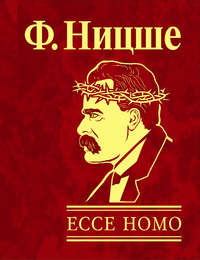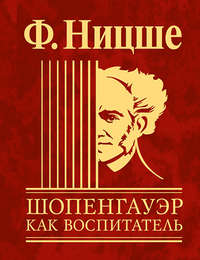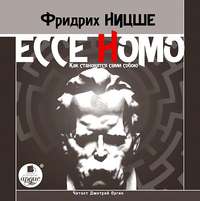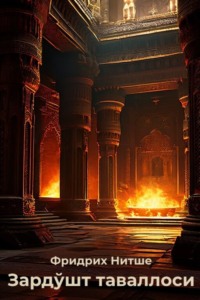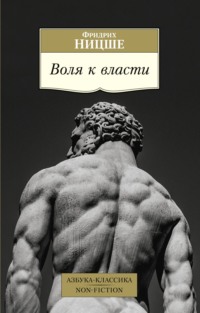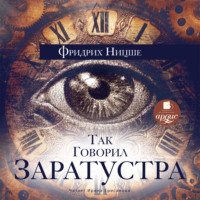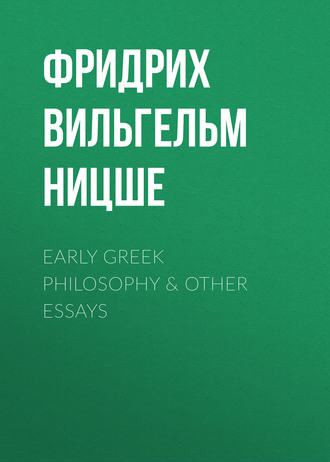 полная версия
полная версияEarly Greek Philosophy & Other Essays
4
Whilst the general type of the philosopher in the picture of Thales is set off rather hazily, the picture of his great successor already speaks much more distinctly to us. Anaximander of Milet, the first philosophical author of the Ancients, writes in the very way that the typical philosopher will always write as long as he is not alienated from ingenuousness and naïveté by odd claims: in a grand lapidarian style of writing, sentence for sentence … a witness of a new inspiration, and an expression of the sojourning in sublime contemplations. The thought and its form are milestones on the path towards the highest wisdom. With such a lapidarian emphasis Anaximander once said: "Whence things originated, thither, according to necessity, they must return and perish; for they must pay penalty and be judged for their injustices according to the order of time." Enigmatical utterance of a true pessimist, oracular inscription on the boundary-stone of Greek philosophy, how shall we explain thee?
The only serious moralist of our century in the Parergis (Vol. ii., chap. 12, "Additional Remarks on The Doctrine about the Suffering in the World, Appendix of Corresponding Passages") urges on us a similar contemplation: "The right standard by which to judge every human being is that he really is a being who ought not to exist at all, but who is expiating his existence by manifold forms of suffering and death: – What can one expect from such a being? Are we not all sinners condemned to death? We expiate our birth firstly by our life and secondly by our death." He who in the physiognomy of our universal human lot reads this doctrine and already recognises the fundamental bad quality of every human life, in the fact that none can stand a very close and careful contemplation – although our time, accustomed to the biographical epidemic, seems to think otherwise and more loftily about the dignity of man; he who, like Schopenhauer, on "the heights of the Indian breezes" has heard the sacred word about the moral value of existence, will be kept with difficulty from making an extremely anthropomorphic metaphor and from generalizing that melancholy doctrine – at first only limited to human life – and applying it by transmission to the general character of all existence. It may not be very logical, it is however at any rate very human and moreover quite in harmony with the philosophical leaping described above, now with Anaximander to consider all Becoming as a punishable emancipation from eternal "Being," as a wrong that is to be atoned for by destruction. Everything that has once come into existence also perishes, whether we think of human life or of water or of heat and cold; everywhere where definite qualities are to be noticed, we are allowed to prophesy the extinction of these qualities – according to the all-embracing proof of experience. Thus a being that possesses definite qualities and consists of them, can never be the origin and principle of things; the veritable ens, the "Existent," Anaximander concluded, cannot possess any definite qualities, otherwise, like all other things, it would necessarily have originated and perished. In order that Becoming may not cease, the Primordial-being must be indefinite. The immortality and eternity of the Primordial-being lies not in an infiniteness and inexhaustibility – as usually the expounders of Anaximander presuppose – but in this, that it lacks the definite qualities which lead to destruction, for which reason it bears also its name: The Indefinite. The thus labelled Primordial-being is superior to all Becoming and for this very reason it guarantees the eternity and unimpeded course of Becoming. This last unity in that Indefinite, the mother-womb of all things, can, it is true, be designated only negatively by man, as something to which no predicate out of the existing world of Becoming can be allotted, and might be considered a peer to the Kantian "Thing-in-itself."
Of course he who is able to wrangle persistently with others as to what kind of thing that primordial substance really was, whether perhaps an intermediate thing between air and water, or perhaps between air and fire, has not understood our philosopher at all; this is likewise to be said about those, who seriously ask themselves, whether Anaximander had thought of his primordial substance as a mixture of all existing substances. Rather we must direct our gaze to the place where we can learn that Anaximander no longer treated the question of the origin of the world as purely physical; we must direct our gaze towards that first stated lapidarian proposition. When on the contrary he saw a sum of wrongs to be expiated in the plurality of things that have become, then he, as the first Greek, with daring grasp caught up the tangle of the most profound ethical problem. How can anything perish that has a right to exist? Whence that restless Becoming and giving-birth, whence that expression of painful distortion on the face of Nature, whence the never-ending dirge in all realms of existence? Out of this world of injustice, of audacious apostasy from the primordial-unity of things Anaximander flees into a metaphysical castle, leaning out of which he turns his gaze far and wide in order at last, after a pensive silence, to address to all beings this question: "What is your existence worth? And if it is worth nothing why are you there? By your guilt, I observe, you sojourn in this world. You will have to expiate it by death. Look how your earth fades; the seas decrease and dry up, the marine-shell on the mountain shows you how much already they have dried up; fire destroys your world even now, finally it will end in smoke and ashes. But again and again such a world of transitoriness will ever build itself up; who shall redeem you from the curse of Becoming?"
Not every kind of life may have been welcome to a man who put such questions, whose upward-soaring thinking continually broke the empiric ropes, in order to take at once to the highest, superlunary flight. Willingly we believe tradition, that he walked along in especially dignified attire and showed a truly tragic hauteur in his gestures and habits of life. He lived as he wrote; he spoke as solemnly as he dressed himself, he raised his hand and placed his foot as if this existence was a tragedy, and he had been born in order to co-operate in that tragedy by playing the rôle of hero. In all that he was the great model of Empedocles. His fellow-citizens elected him the leader of an emigrating colony – perhaps they were pleased at being able to honour him and at the same time to get rid of him. His thought also emigrated and founded colonies; in Ephesus and in Elea they could not get rid of him; and if they could not resolve upon staying at the spot where he stood, they nevertheless knew that they had been led there by him, whence they now prepared to proceed without him.
Thales shows the need of simplifying the empire of plurality, and of reducing it to a mere expansion or disguise of the one single existing quality, water. Anaximander goes beyond him with two steps. Firstly he puts the question to himself: How, if there exists an eternal Unity at all, is that Plurality possible? and he takes the answer out of the contradictory, self-devouring and denying character of this Plurality. The existence of this Plurality becomes a moral phenomenon to him; it is not justified, it expiates itself continually through destruction. But then the questions occur to him: Yet why has not everything that has become perished long ago, since, indeed, quite an eternity of time has already gone by? Whence the ceaseless current of the River of Becoming? He can save himself from these questions only by mystic possibilities: the eternal Becoming can have its origin only in the eternal "Being," the conditions for that apostasy from that eternal "Being" to a Becoming in injustice are ever the same, the constellation of things cannot help itself being thus fashioned, that no end is to be seen of that stepping forth of the individual being out of the lap of the "Indefinite." At this Anaximander stayed; that is, he remained within the deep shadows which like gigantic spectres were lying on the mountain range of such a world-perception. The more one wanted to approach the problem of solving how out of the Indefinite the Definite, out of the Eternal the Temporal, out of the Just the Unjust could by secession ever originate, the darker the night became. —
5
Towards the midst of this mystic night, in which Anaximander's problem of the Becoming was wrapped up, Heraclitus of Ephesus approached and illuminated it by a divine flash of lightning. "I contemplate the Becoming," he exclaimed, – "and nobody has so attentively watched this eternal wave-surging and rhythm of things. And what do I behold? Lawfulness, infallible certainty, ever equal paths of Justice, condemning Erinyes behind all transgressions of the laws, the whole world the spectacle of a governing justice and of demoniacally omnipresent natural forces subject to justice's sway. I do not behold the punishment of that which has become, but the justification of Becoming. When has sacrilege, when has apostasy manifested itself in inviolable forms, in laws esteemed sacred? Where injustice sways, there is caprice, disorder, irregularity, contradiction; where however Law and Zeus' daughter, Dike, rule alone, as in this world, how could the sphere of guilt, of expiation, of judgment, and as it were the place of execution of all condemned ones be there?"
From this intuition Heraclitus took two coherent negations, which are put into the right light only by a comparison with the propositions of his predecessor. Firstly, he denied the duality of two quite diverse worlds, into the assumption of which Anaximander had been pushed; he no longer distinguished a physical world from a metaphysical, a realm of definite qualities from a realm of indefinable indefiniteness. Now after this first step he could neither be kept back any longer from a still greater audacity of denying: he denied "Being" altogether. For this one world which was left to him, – shielded all round by eternal, unwritten laws, flowing up and down in the brazen beat of rhythm, – shows nowhere persistence, indestructibility, a bulwark in the stream. Louder than Anaximander, Heraclitus exclaimed: "I see nothing but Becoming. Be not deceived! It is the fault of your limited outlook and not the fault of the essence of things if you believe that you see firm land anywhere in the ocean of Becoming and Passing. You need names for things, just as if they had a rigid permanence, but the very river in which you bathe a second time is no longer the same one which you entered before."
Heraclitus has as his royal property the highest power of intuitive conception, whereas towards the other mode of conception which is consummated by ideas and logical combinations, that is towards reason, he shows himself cool, apathetic, even hostile, and he seems to derive a pleasure when he is able to contradict reason by means of a truth gained intuitively, and this he does in such propositions as: "Everything has always its opposite within itself," so fearlessly that Aristotle before the tribunal of Reason accuses him of the highest crime, of having sinned against the law of opposition. Intuitive representation however embraces two things: firstly, the present, motley, changing world, pressing on us in all experiences, secondly, the conditions by means of which alone any experience of this world becomes possible: time and space. For these are able to be intuitively apprehended, purely in themselves and independent of any experience; i. e., they can be perceived, although they are without definite contents. If now Heraclitus considered time in this fashion, dissociated from all experiences, he had in it the most instructive monogram of all that which falls within the realm of intuitive conception. Just as he conceived of time, so also for instance did Schopenhauer, who repeatedly says of it: that in it every instant exists only in so far as it has annihilated the preceding one, its father, in order to be itself effaced equally quickly; that past and future are as unreal as any dream; that the present is only the dimensionless and unstable boundary between the two; that however, like time, so space, and again like the latter, so also everything that is simultaneously in space and time, has only a relative existence, only through and for the sake of a something else, of the same kind as itself, i. e., existing only under the same limitations. This truth is in the highest degree self-evident, accessible to everyone, and just for that very reason, abstractly and rationally, it is only attained with great difficulty. Whoever has this truth before his eyes must however also proceed at once to the next Heraclitean consequence and say that the whole essence of actuality is in fact activity, and that for actuality there is no other kind of existence and reality, as Schopenhauer has likewise expounded ("The World As Will And Idea," Vol. I., Bk. I, sec. 4): "Only as active does it fill space and time: its action upon the immediate object determines the perception in which alone it exists: the effect of the action of any material object upon any other, is known only in so far as the latter acts upon the immediate object in a different way from that in which it acted before; it consists in this alone. Cause and effect thus constitute the whole nature of matter; its true being is its action. The totality of everything material is therefore very appropriately called in German Wirklichkeit (actuality) – a word which is far more expressive than Realität (reality).4 That upon which actuality acts is always matter; actuality's whole 'Being' and essence therefore consist only in the orderly change, which one part of it causes in another, and is therefore wholly relative, according to a relation which is valid only within the boundary of actuality, as in the case of time and space."
The eternal and exclusive Becoming, the total instability of all reality and actuality, which continually works and becomes and never is, as Heraclitus teaches – is an awful and appalling conception, and in its effects most nearly related to that sensation, by which during an earthquake one loses confidence in the firmly-grounded earth. It required an astonishing strength to translate this effect into its opposite, into the sublime, into happy astonishment. Heraclitus accomplished this through an observation of the proper course of all Becoming and Passing, which he conceived of under the form of polarity, as the divergence of a force into two qualitatively different, opposite actions, striving after reunion. A quality is set continually at variance with itself and separates itself into its opposites: these opposites continually strive again one towards another. The common people of course think to recognise something rigid, completed, consistent; but the fact of the matter is that at any instant, bright and dark, sour and sweet are side by side and attached to one another like two wrestlers of whom sometimes the one succeeds, sometimes the other. According to Heraclitus honey is at the same time sweet and bitter, and the world itself an amphora whose contents constantly need stirring up. Out of the war of the opposites all Becoming originates; the definite and to us seemingly persistent qualities express only the momentary predominance of the one fighter, but with that the war is not at an end; the wrestling continues to all eternity. Everything happens according to this struggle, and this very struggle manifests eternal justice. It is a wonderful conception, drawn from the purest source of Hellenism, which considers the struggle as the continual sway of a homogeneous, severe justice bound by eternal laws. Only a Greek was able to consider this conception as the fundament of a Cosmodicy; it is Hesiod's good Eris transfigured into the cosmic principle, it is the idea of a contest, an idea held by individual Greeks and by their State, and translated out of the gymnasia and palæstra, out of the artistic agonistics, out of the struggle of the political parties and of the towns into the most general principle, so that the machinery of the universe is regulated by it. Just as every Greek fought as though he alone were in the right, and as though an absolutely sure standard of judicial opinion could at any instant decide whither victory is inclining, thus the qualities wrestle one with another, according to inviolable laws and standards which are inherent in the struggle. The Things themselves in the permanency of which the limited intellect of man and animal believes, do not "exist" at all; they are as the fierce flashing and fiery sparkling of drawn swords, as the stars of Victory rising with a radiant resplendence in the battle of the opposite qualities.
That struggle which is peculiar to all Becoming, that eternal interchange of victory is again described by Schopenhauer: ("The World As Will And Idea," Vol. I., Bk. 2, sec. 27) "The permanent matter must constantly change its form; for under the guidance of causality, mechanical, physical, chemical, and organic phenomena, eagerly striving to appear, wrest the matter from each other, for each desires to reveal its own Idea. This strife may be followed up through the whole of nature; indeed nature exists only through it." The following pages give the most noteworthy illustrations of this struggle, only that the prevailing tone of this description ever remains other than that of Heraclitus in so far as to Schopenhauer the struggle is a proof of the Will to Life falling out with itself; it is to him a feasting on itself on the part of this dismal, dull impulse, as a phenomenon on the whole horrible and not at all making for happiness. The arena and the object of this struggle is Matter, – which some natural forces alternately endeavour to disintegrate and build up again at the expense of other natural forces, – as also Space and Time, the union of which through causality is this very matter.
6
Whilst the imagination of Heraclitus measured the restlessly moving universe, the "actuality" (Wirklichkeit), with the eye of the happy spectator, who sees innumerable pairs wrestling in joyous combat entrusted to the superintendence of severe umpires, a still higher presentiment seized him, he no longer could contemplate the wrestling pairs and the umpires, separated one from another; the very umpires seemed to fight, and the fighters seemed to be their own judges – yea, since at the bottom he conceived only of the one Justice eternally swaying, he dared to exclaim: "The contest of The Many is itself pure justice. And after all: The One is The Many. For what are all those qualities according to their nature? Are they immortal gods? Are they separate beings working for themselves from the beginning and without end? And if the world which we see knows only Becoming and Passing but no Permanence, should perhaps those qualities constitute a differently fashioned metaphysical world, true, not a world of unity as Anaximander sought behind the fluttering veil of plurality, but a world of eternal and essential pluralities?" Is it possible that however violently he had denied such duality, Heraclitus has after all by a round-about way accidentally got into the dual cosmic order, an order with an Olympus of numerous immortal gods and demons, – viz., many realities, – and with a human world, which sees only the dust-cloud of the Olympic struggle and the flashing of divine spears, —i. e., only a Becoming? Anaximander had fled just from these definite qualities into the lap of the metaphysical "Indefinite"; because the former became and passed, he had denied them a true and essential existence; however should it not seem now as if the Becoming is only the looming-into-view of a struggle of eternal qualities? When we speak of the Becoming, should not the original cause of this be sought in the peculiar feebleness of human cognition – whereas in the nature of things there is perhaps no Becoming, but only a co-existing of many true increate indestructible realities?
These are Heraclitean loop-holes and labyrinths; he exclaims once again: "The 'One' is the 'Many'." The many perceptible qualities are neither eternal entities, nor phantasmata of our senses (Anaxagoras conceives them later on as the former, Parmenides as the latter), they are neither rigid, sovereign "Being" nor fleeting Appearance hovering in human minds. The third possibility which alone was left to Heraclitus nobody will be able to divine with dialectic sagacity and as it were by calculation, for what he invented here is a rarity even in the realm of mystic incredibilities and unexpected cosmic metaphors. – The world is the Game of Zeus, or expressed more physically, the game of fire with itself, the "One" is only in this sense at the same time the "Many." —
In order to elucidate in the first place the introduction of fire as a world-shaping force, I recall how Anaximander had further developed the theory of water as the origin of things. Placing confidence in the essential part of Thales' theory, and strengthening and adding to the latter's observations, Anaximander however was not to be convinced that before the water and, as it were, after the water there was no further stage of quality: no, to him out of the Warm and the Cold the Moist seemed to form itself, and the Warm and the Cold therefore were supposed to be the preliminary stages, the still more original qualities. With their issuing forth from the primordial existence of the "Indefinite," Becoming begins. Heraclitus who as physicist subordinated himself to the importance of Anaximander, explains to himself this Anaximandrian "Warm" as the respiration, the warm breath, the dry vapours, in short as the fiery element: about this fire he now enunciates the same as Thales and Anaximander had enunciated about the water: that in innumerable metamorphoses it was passing along the path of Becoming, especially in the three chief aggregate stages as something Warm, Moist, and Firm. For water in descending is transformed into earth, in ascending into fire: or as Heraclitus appears to have expressed himself more exactly: from the sea ascend only the pure vapours which serve as food to the divine fire of the stars, from the earth only the dark, foggy ones, from which the Moist derives its nourishment. The pure vapours are the transitional stage in the passing of sea into fire, the impure the transitional stage in the passing of earth into water. Thus the two paths of metamorphosis of the fire run continuously side by side, upwards and downwards, to and fro, from fire to water, from water to earth, from earth back again to water, from water to fire. Whereas Heraclitus is a follower of Anaximander in the most important of these conceptions, e. g., that the fire is kept up by the evaporations, or herein, that out of the water is dissolved partly earth, partly fire; he is on the other hand quite independent and in opposition to Anaximander in excluding the "Cold" from the physical process, whilst Anaximander had put it side by side with the "Warm" as having the same rights, so as to let the "Moist" originate out of both. To do so, was of course a necessity to Heraclitus, for if everything is to be fire, then, however many possibilities of its transformation might be assumed, nothing can exist that would be the absolute antithesis to fire; he has, therefore, probably interpreted only as a degree of the "Warm" that which is called the "Cold," and he could justify this interpretation without difficulty. Much more important than this deviation from the doctrine of Anaximander is a further agreement; he, like the latter, believes in an end of the world periodically repeating itself and in an ever-renewed emerging of another world out of the all-destroying world-fire. The period during which the world hastens towards that world-fire and the dissolution into pure fire is characterised by him most strikingly as a demand and a need; the state of being completely swallowed up by the fire as satiety; and now to us remains the question as to how he understood and named the newly awakening impulse for world-creation, the pouring-out-of-itself into the forms of plurality. The Greek proverb seems to come to our assistance with the thought that "satiety gives birth to crime" (the Hybris) and one may indeed ask oneself for a minute whether perhaps Heraclitus has derived that return to plurality out of the Hybris. Let us just take this thought seriously: in its light the face of Heraclitus changes before our eyes, the proud gleam of his eyes dies out, a wrinkled expression of painful resignation, of impotence becomes distinct, it seems that we know why later antiquity called him the "weeping philosopher." Is not the whole world-process now an act of punishment of the Hybris? The plurality the result of a crime? The transformation of the pure into the impure, the consequence of injustice? Is not the guilt now shifted into the essence of the things and indeed, the world of Becoming and of individuals accordingly exonerated from guilt; yet at the same time are they not condemned for ever and ever to bear the consequences of guilt?





